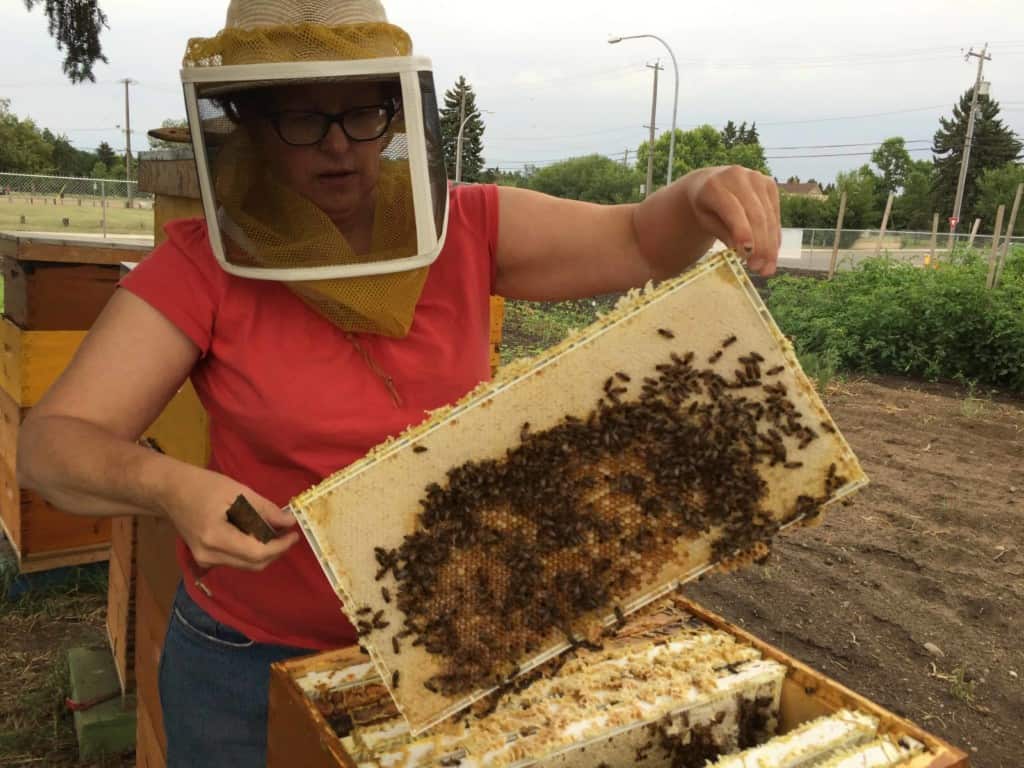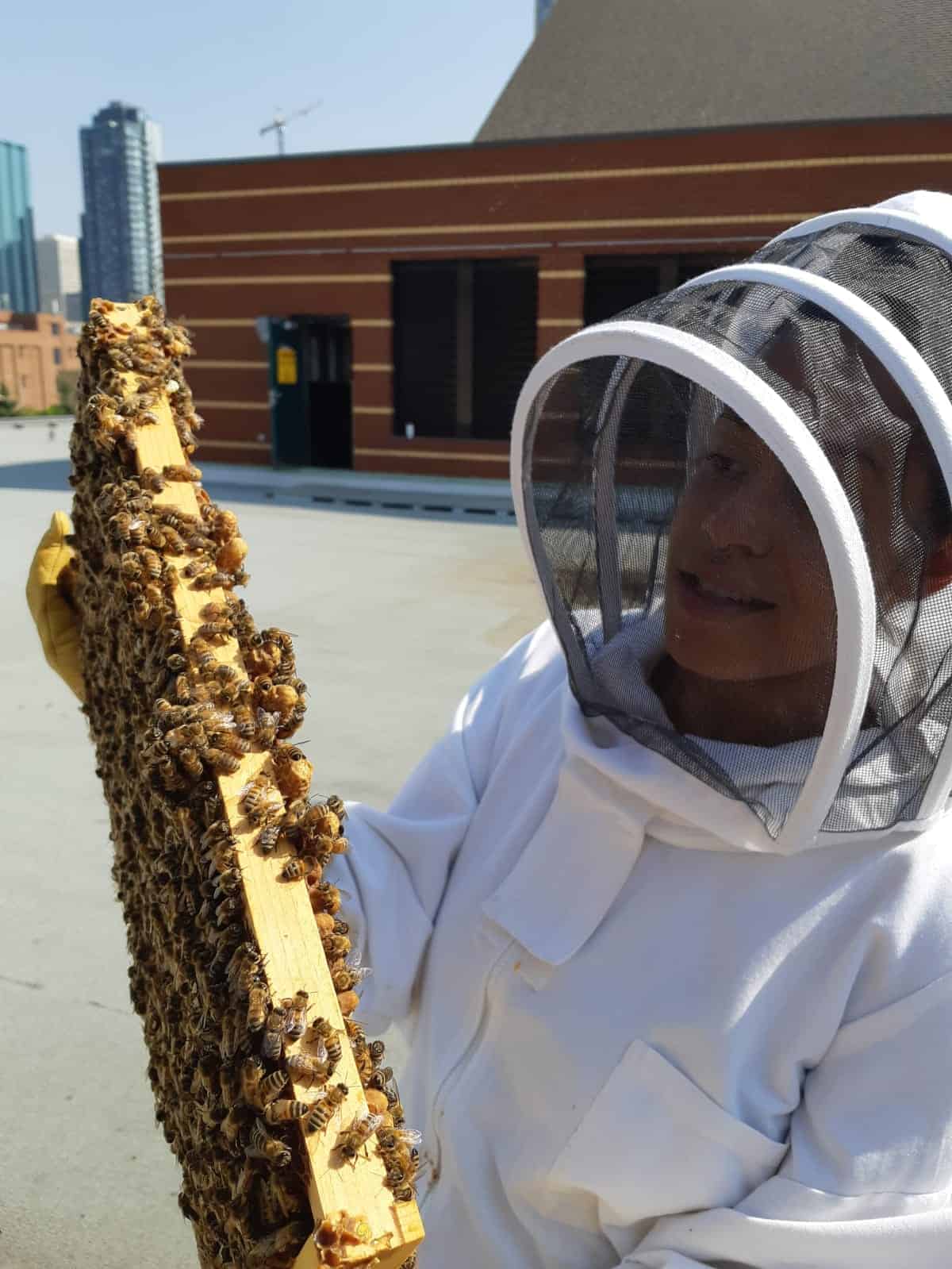Be in the know on urban bee workshops
Alberta Avenue Community League will have a beehive this summer
Amelia Altmiks grew up in Edmonton, but the time she spent at her grandparents’ farm affected her deeply.
“I loved being able to go out and do things on the farm and spend that time with nature. It felt like a huge disconnect not being able to do those things in the city,” she says. Back in Edmonton, she and her mother sometimes struggled to make ends meet and couldn’t always access fresh food. That contrast sparked an interest in food systems and food security.
“So for me, the question of good, whole food, and knowing systems of nature and how those were intertwined was something I’ve been thinking about for a long time, and I feel that it’s important for people in the city to be reminded of those food systems. It makes us cherish the food we have a lot more.”

Three years ago, she took a step to bring the farm to the city by completing an urban beekeeping certification through the City of Edmonton. She volunteered with MacEwan University’s beekeeping site and networked with fellow beekeepers, gaining experience before setting up her own hive with a neighbour.
“I feel like it’s pretty intertwined with my love of food, and being able to share that with people, and to build community around food. It is the number one way we bring people together.”
Now, with the help of a MacEwan grant, Altmiks will be sharing her knowledge and bringing people together with Alberta Avenue community members through a series of workshops leading up to this summer’s installation of a beehive at the hall.

The first workshop (Bees 101) has already occurred, but three more are upcoming.
On Feb. 6, get a free overview with Becoming a Beekeeper. It is a way for people who are interested in beekeeping to understand what is involved in beekeeping and setting up a hive.
Food Medicine (Feb. 29) examines how to plant a garden that will attract pollinators from spring to fall, and ways you can use what your garden produces. Participants will also take home a jar of honey. The fee for this session is $5.

The last session on March 7 is the Family Bees Workshop, presented in partnership with the Edmonton and Area Land Trust. For $10, families can make bee hotels and learn to connect the information learned at the workshop to the real world. “It’s a way to be involved, so you don’t need to have a whole bee box. You can help the solitary bees that are native to North America.”
Altmiks also connects urban agriculture skills to climate change resilience. Rural farms are already affected. Floods, drought, and fire are becoming more common, and sooner or later the way we produce food will have to change.
“It’s sometimes overwhelming thinking about climate change, and it can be so sad and disheartening. But having those bits of knowledge and knowing that you’re helping, doing that part of it—those ripples make big changes eventually.”You can find more information on the Urban Bees Workshop events on Facebook at facebook.com/events/614345942698930/ or email thehiveuca@gmail.com to register.
Featured Image: Amelia Altmiks (pictured) will be sharing her knowledge of beekeeping through workshops. | Supplied







